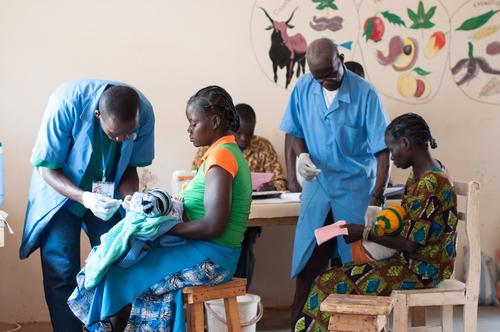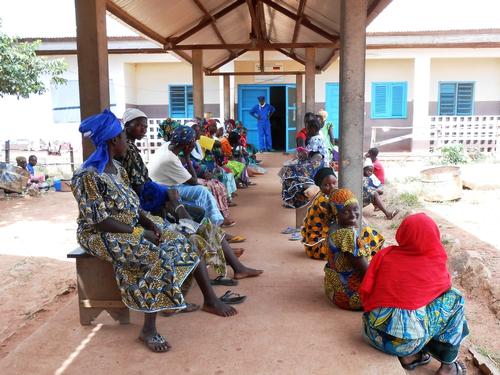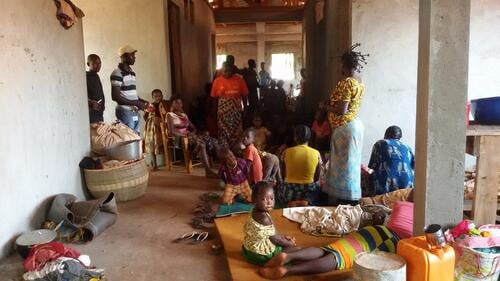A situation that is far from ‘normal’
Following the 2016 elections, some international players have been speaking of a ‘normalisation’ of the situation in Central African Republic (CAR) to justify a gradual shift toward development at the expense of humanitarian response capacity. Every day, Médecins Sans Frontières (MSF) witnesses a very different reality: large numbers of people who are still prisoners of violence and fear and who not have access to basic services, such as housing, food, potable water, sanitation, healthcare and protection. More than half of the country’s population is in need of humanitarian assistance and nearly 400,000 are internally displaced; another half a million have sought refuge in neighbouring countriesSource: Commission of population movements. July 2016. Protracted crises all too often tend to degenerate into acute crises, and impact the population’s health in the long term, rendering people yet more vulnerable and weakening the healthcare infrastructure intended to care for them.
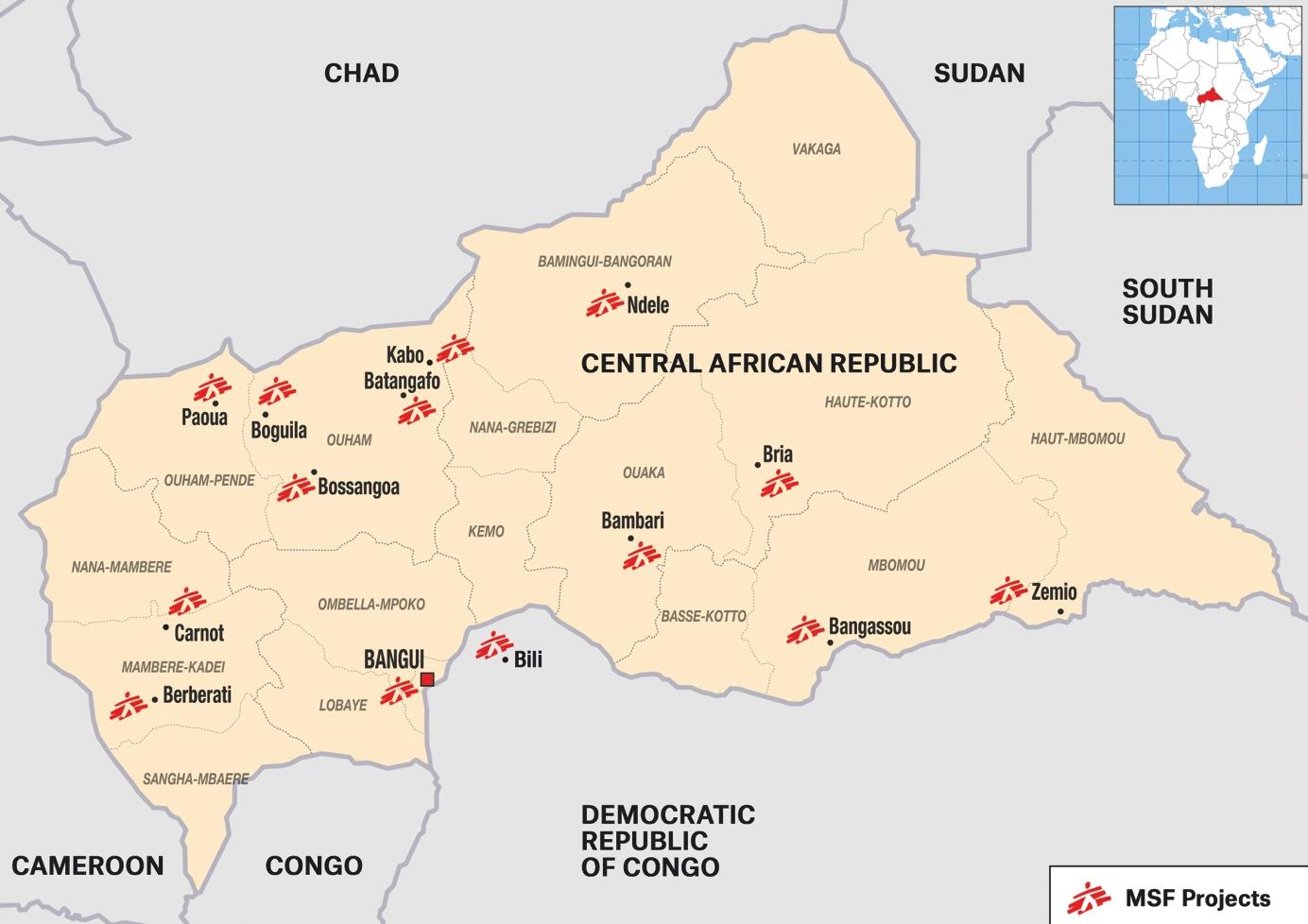
Dysfunctional health system and massive barriers to access
The public healthcare system does not function normally, and people are heavily dependent on humanitarian aid for healthcare and other necessities. In many cases, MSF has found itself obliged to take over healthcare provision for the general population where there are no other healthcare providers present. Healthcare facilities that do operate are doing so hamstrung by a severe shortage of medical staff, especially in rural areas. On top of that, most of CAR’s population still does not have access to basic healthcare, due to physical barriers (poor condition of roads, roadblocks and banditry), barriers linked to the provision of care (lack of trained staff and appropriate infrastructure), and financial concerns (poverty and fees that most cannot afford).
Indicators stagnant or worsening
The healthcare situation in CAR is alarming, with healthcare indicators pointing to a situation similar to, or worse than, previous years. For example, at the end of June 2016, MSF had already treated 6,700 malnourished children – significantly more than half of the 10,200 cases treated in 2015. Despite the changes on the political scene this year, MSF has not witnessed a decrease in needs in terms of healthcare and humanitarian response.
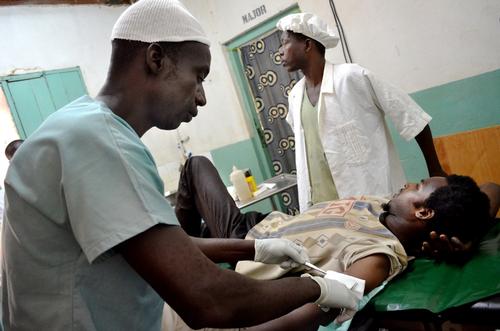
Healthcare needs in CAR are clearly immense. In 2015, CAR was MSF’s third largest mission in terms of investment, behind the DRC and South Sudan. The level of engagement on the part of the government and the international community, however, does not reflect these needs. Current propositions for funding for the healthcare sector in CAR are unrealistically small. The Ministry of Health’s proposed spending on health and nutritional programming for the whole of the country amounts to approximately US$60 million per yearSource: CAR Ministry of Health. “Les besoins de relèvement du système de santé en République centrafricaine”. 2016.. In contrast, MSF spent 55 million euros of private donors’ money last year in CAR. The amount of money allocated by MSF, a humanitarian organisation, is also larger than, or on the par with, investments in humanitarian programming by any individual donor government to the country.
This is not the time for donors, the government of CAR and international actors to disengage or de-prioritise humanitarian aid. Unfortunately, the situation in CAR is such that the lives, health and well-being of many Central Africans depend on the action of humanitarian organisations and international financial pledges. The persistent humanitarian needs of the population of CAR must therefore remain a top priority on the international agenda. MSF is making an urgent call for:
- Barriers that prevent access to healthcare for the most vulnerable to be lifted as a matter of urgency. Insecurity, insufficient resources and inadequate health policies remain major obstacles. Contrary to current discourse, humanitarian needs are still not covered and the response must continue.
- Allocation of resources by the Central African government and donors consistent with the current humanitarian and development needs in the health sector.
- Commitment on the part of the Central African authorities to a long-term approach for responding to the country’s structural issues (especially as regards the healthcare system), at least in relatively stable areas of the country.
Additionally, MSF calls upon all parties to the conflict in CAR – the government, armed groups and MINUSCA – to take responsibility for ensuring that the civilian population is protected; to guarantee humanitarian access in urban areas and more remote parts of the country; and to ensure access to healthcare and respect for healthcare workers and facilities.
MSF in Central African Republic
MSF has been present in CAR since 1997, and is today running 17 emergency humanitarian aid projects in nine of the country’s 17 provinces. More than 2,900 Central African and 230 international staff members care for patients in 13 hospitals, three maternity clinics and 47 health centres and health posts.
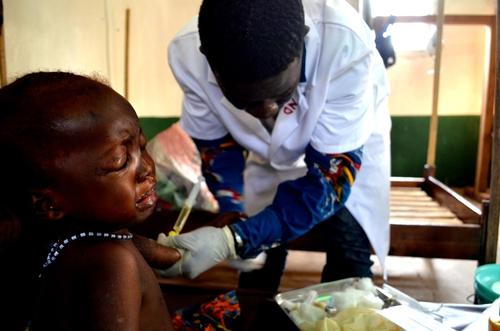
In 2015, the organisation’s budget for medical activities in CAR was 55 million euros. In terms of expenditure, CAR (with a population estimated at 4.9 millionSource: World Bank. “République Centrafricaine”. 2015. http://www.banquemondiale.org/fr/country/centralafricanrepublic) was MSF’s third largest single-country mission, following Democratic Republic of Congo (>65 million inhabitants) and South Sudan (11 million inhabitants).
2015 in numbers
- 1,050,000 medical consultations conducted, 57 per cent of which were for malaria
- 18,000 deliveries
- 7,100 surgical interventions carried out
- 10,200 malnourished children cared for
- 1,100 victims of sexual violence cared for
- 4,300 individuals living with HIV/AIDS initiated on antiretroviral treatment
Activities
- Primary healthcare and hospital services
- Vaccination
- Mother and child health
- Surgery
- HIV/AIDS
- Mental health
- Epidemiological surveillance and response
- Laboratory services
- Support to victims of violence
- Health promotion and disease prevention
- Training and higher education



